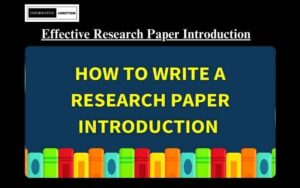It’s always possible to sharpen your writing skills, whether you’re creating social media posts, commercial copy, website content, or even novel chapters. This article’s advice is meant to help you become a more accomplished writer.
Here are a dozen suggestions for improving your writing:
Be familiar with standard writing conventions
Good writing, like all other fields, is founded on fundamentals. Once you’ve mastered these guidelines—you’ll know you’ve arrived when they become automatic for you—you’ll be free to express yourself uniquely in your writing. The laws are there to be broken, after all, and you will find opportunities to use poetic license whenever doing so will strengthen your narrative.
But before you start breaking all the rules, you should be confident with standard English language, punctuation, and spelling. Writers should always have a copy of “The Elements of Style” by Strunk and White and a reliable dictionary handy. Most professional writers prefer to use Merriam-Webster.
Journalists, news writers, and bloggers alike use the AP Stylebook as a reference when crafting nonfiction pieces for publication. The Chicago Manual of Style, the Modern Language Association’s (MLA) Publication Manual, and the Modern Language Association’s (APA) Style Manual are common among academic and professional writers.
Although it is not necessary to learn every element of these stylebooks by heart (they are detailed, varied, and lengthy), it is recommended that all authors be familiar with, know how to use, and frequently refer to these guidelines.
Keep reading
The fact that most famous authors are also voracious readers shouldn’t come as a shock. You may learn the lilt of language, the rhythm of text, and the variety of voices that come through in polished prose by reading widely. If you want to learn new terms and improve your vocabulary, look them up in a dictionary.
Make reading a daily ritual. The daily newspaper should be read. Every once in a while, indulge in a glossy business magazine. Check out blogs that don’t interest you and follow the ones that do. Read works from categories you’re not used to reading. Read some romance novels if you enjoy reading about true crimes. Try reading some historical fiction if you’re a die-hard fan of science fiction; you could be pleasantly surprised. The goal is to being exposed to as many different writing styles as possible so that you may begin to develop your own.
make a detailed outline.
Writing with clarity and focus requires careful thought and planning before you put pen to paper. The most proficient authors I know always start with an outline before they ever put pen to paper (or fingers to keyboard) to compose the first word.
No of the length of your writing project, from a short blog post to a lengthy book, an outline will serve as a vital tool in helping you structure your ideas, fill in any research or presentation gaps, and hone your message.
Introduce yourself and your topic. Write a few sentences that capture the essence of your post, blog, or opening chapter. Keep in mind that this is only a framework, and that you need not stress about coming up with the ideal words to describe your ideas.
Make a few divisions next. Don’t try to cover too much ground in one paragraph. Put in bullet points what you intend to discuss in each area. Take a look at your outline now and change portions as needed to ensure a smooth flow of ideas.
Create a coherent argument
Consider the paper’s purpose before beginning to write. Is there a particular message you hope people will get from reading this?
If you just have 30 seconds to explain your entire point, a “elevator pitch” would be the best option. Never stop practicing this speech until it’s perfect. It is far more efficient to develop message clarity before beginning to write.
Say what you mean and stop babbling
Watch how you put your thoughts into words. Trying to communicate too much at once can cause people to tune out. Limit yourself to the bare minimum of information and description. If a section of text seems excessive, it probably is.
Use concise language and cut out the fluff. Many beginning writers make the mistake of using unnecessary adverbs. Saying something is beautiful is simpler than stating that it is very attractive.
Try out different word combinations.
Your best friend is a thesaurus. Use it. One of the best parts of writing is experimenting with language to find the right words to express what you’re trying to say. Experiment with different modes of self-expression. Alternately, beautiful could be rephrased as magnificent, stunning, or glamorous.
While it’s always beneficial to increase one’s vocabulary, unnecessary filler words should be avoided. Use phrases like “we agree with that idea” instead of “we absolutely agree with that idea.” The adverb “absolutely” is unnecessary and adds nothing to your argument.
Show your individuality through your writing.
Being genuine is the best strategy for creating an own voice in your work. Write in a way that reflects who you are and use words and phrases that come naturally to you. When appropriate, include a personal narrative to shed light on the topic at hand.
In the absence of any grammatical constraints, you are free to use some lyrical freedom. If you’re from the South, for example, you could prefer to write “y’all” for the plural of you rather than the more formal “you.”
Reduce the use of complicated words
Avoid using a fancy word when a simple one would serve. Do you have to use the word “municipality” when “city” or “town” would do?
Keep in mind that your goal should be to share your expertise and ideas with your readers, not to wow them with your intelligence. To be safe, stick to short phrases.
Click Here if you want to read more Interesting Blogs.




